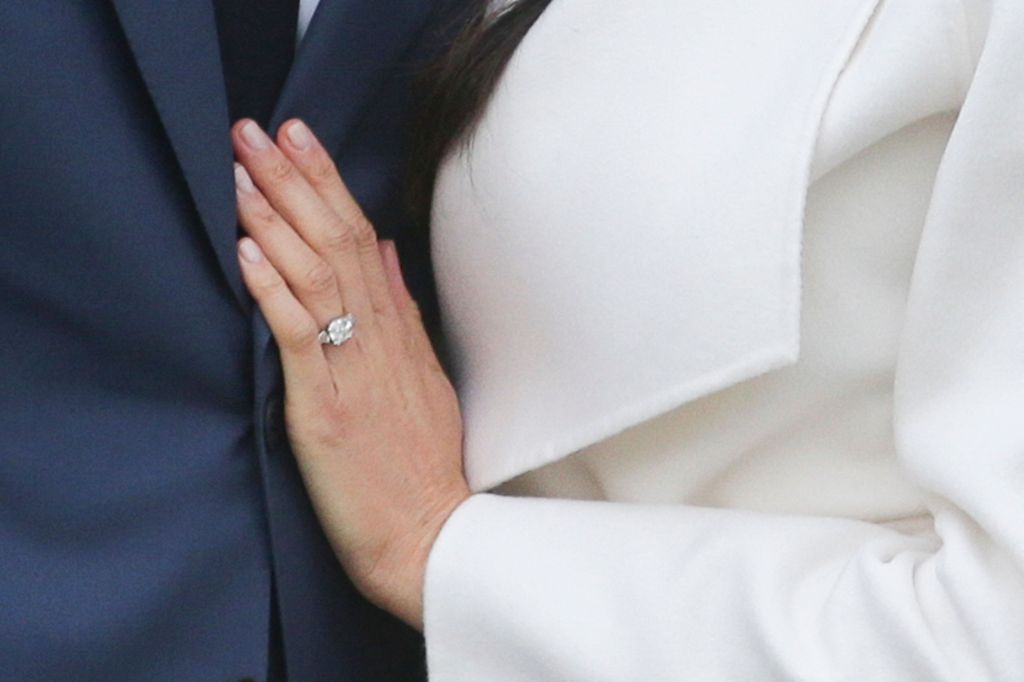A person who bought a hoop for a dear $70,000 can be getting it again from his ex-fiancée after breaking off the engagement when he grew cautious of infidelity within the relationship.
The Massachusetts State Supreme Judicial Court docket made the ruling after a six-year battle crammed with twists and turns over whether or not the mister would recuperate the ring or the madam would preserve it perpetually.
For greater than six many years, the state’s highest court docket acknowledged an antenuptial ring as a conditional reward that the giver could recuperate following a failed engagement, provided that she or he was “with out fault.”
That stance has modified with Friday’s ruling within the failed love story of Bruce Johnson and Caroline Settino.
“We now be a part of the trendy pattern adopted by nearly all of jurisdictions which have thought-about the difficulty and retire the idea of fault on this context,” Justice Dalila Argaez Wendlandt wrote in her resolution, “the place, as right here, the deliberate wedding ceremony doesn’t ensue and the engagement is ended, the engagement ring have to be returned to the donor no matter fault.”
Johnson’s years-long struggle to get the ring and wedding ceremony bands again from Settino took middle stage in Massachusetts State Supreme Judicial Court docket in Boston in September.
Lawyer Stephanie Taverna Siden argued for Johnson, requesting the excessive court docket overturn a trial court docket’s resolution that Settino stored the ring and award the costly bling again to her consumer.
Taverna Siden mentioned she additionally desires the SJC to alter the state regulation on how engagement rings are handled after a breakup, for Massachusetts to undertake a “no-fault, conditional reward rule.”
“It’s the most equitable and environment friendly method and prevents courts from wading into the small print of personal relationships,” Taverna Siden wrote in an April court docket submitting.
“The Court docket ought to proceed to deal with engagement rings as conditional presents,” she added, “as a result of the standing of conditional presents preserves the particular significance of the engagement ring and likewise prevents unjust enrichment.”
All had been faring nicely within the love shared between Bruce Johnson and Caroline Settino, with the couple getting engaged on the glitzy Wequassett Resort & Golf Membership in Harwich, on Cape Cod, in late August 2017.
The engagement got here simply over per week after Johnson bought a $70,000 engagement ring at Tiffany’s jewellery retailer in Boston, astronomically increased than the $5,500 value common within the nation, in keeping with The Knot.
The couple bought two wedding ceremony bands from Tiffany’s with the marriage date, deliberate for September 2018, inscribed inside for over $3,700, in keeping with court docket paperwork.
As an alternative of exchanging vows that 12 months, Johnson served Settino with a lawsuit after he had purpose to imagine she was dishonest on him.
Pressure escalated in November 2017 when Johnson went by Settino’s telephone and noticed a textual content she despatched to a different man, studying “[m]y Bruce goes to be in Connecticut for 3 days. I want some playtime.”
Johnson grew cautious of Settino’s infidelity, believing she was having “sexual activity” with the opposite man, court docket paperwork state.
Herald Ballot: Who ought to preserve an engagement ring?
A Brockton Superior Court docket choose dominated in 2021 that these fears have been unwarranted, and Settino and the opposite man have been “buddies and never romantically concerned.” The court docket dominated Settino may preserve the ring and ordered Johnson to pay greater than $42,000 in deliberate dental work he had promised he’d fund through the engagement.
“It’s typically held that an engagement ring is within the nature of a pledge, given on the implied situation that the wedding shall happen,” paperwork state, citing the trial court docket’s ruling. “If the contract to marry is terminated with out fault on the a part of the donor, he could recuperate the ring.”
An appeals court docket then dominated in favor of Johnson earlier than Settino regarded for the Supreme Judicial Court docket to overturn that ruling.
“I used to be a trainer, I had 60 folks from my faculty coming to the marriage,” Settino mentioned in Appeals Court docket final 12 months. “We have been placing all of them up for 2 days on the resort, we had all kinds of issues … so when he referred to as off the marriage and mentioned I used to be dishonest, I used to be devastated.”
Initially Revealed:
